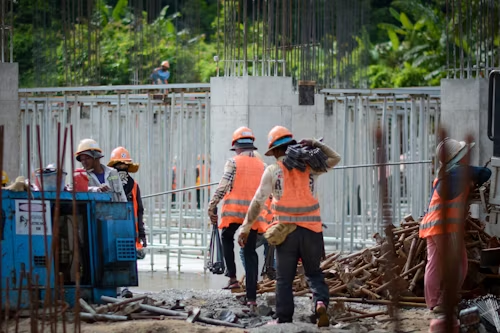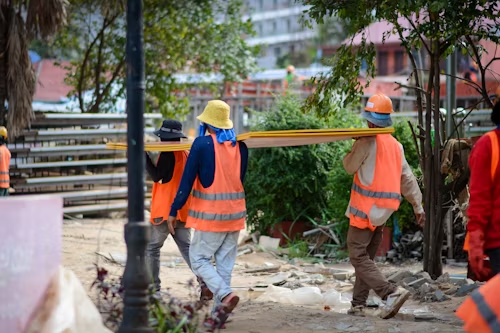
Residents of two New York City Housing Authority (NYCHA) complexes in Chelsea are raising strong objections to the agency’s redevelopment plans that call for the demolition and replacement of their existing buildings. On Saturday, tenants gathered in protest, voicing fears about displacement, health impacts, and long delays before being able to return to permanent housing.

The redevelopment will affect the Fulton and Elliott-Chelsea (FEC) Houses, which together provide 2,056 apartments across Manhattan’s West 17th and West 26th Streets. NYCHA has announced that the buildings will be demolished and replaced with new residential towers, which will not only rebuild all current units but also add more apartments to the site.
NYCHA has promised that every resident will have the opportunity to return under a “Right to Return Agreement.” The policy guarantees tenants an apartment equal in size to their current home in one of the new buildings.
Construction on the first replacement buildings is set to begin later this year. According to NYCHA’s timeline, residents of the Fulton Houses should be able to move into their new apartments in 2028, while those at the Elliott-Chelsea Houses may have to wait until 2029.
During the phased redevelopment, residents in three buildings will be temporarily relocated into refurbished, vacant apartments within the FEC campus. After construction is complete, they will move again into their final new apartments. NYCHA emphasized that the “vast majority of residents” will be able to remain in their current apartments until their replacements are ready.
Still, many tenants remain unconvinced. Roughly 100 households expected to move into temporary units staged a march to the home of their city councilmember, Erik Bottcher, to demand more clarity and stronger protections.

Quentin Elliott, a 71-year-old member of the Chelsea Coalition for Public Housing, described the disruption as life-threatening.
“I’m 71 years old. If you’re telling me that it’s going to take five to 15 years before I can come back here and I got to get used to another community [and] another community, that’s like a grave digger for me,” Elliott said.
Medical professionals have also raised concerns about the stress and instability associated with displacement.
“It’s very impactful on their health. It’s devastating to have to all of a sudden move and not know exactly if you’re going be able to come back,” said Dr. Jesse Fields, a primary care doctor in Harlem.
In response, NYCHA defended the redevelopment as a necessary long-term solution to address both housing quality and affordability in Chelsea.
“Since 2019, residents have helped to outline a plan that addresses over $900 million in mounting physical needs at Fulton and Elliott-Chelsea while maintaining their rights and protections and creating additional new affordable and mixed-income homes on the campuses,” NYCHA said in a statement. “The redevelopment plan delivers a more equitable living experience for NYCHA residents, inclusive of the modern amenities and accessibility features enjoyed by their neighbors in Chelsea.”
The redevelopment plan is part of a broader effort by NYCHA to modernize public housing across New York City, much of which is aging and in dire need of upgrades. While the agency stresses that tenants’ rights will be protected, community members remain skeptical about whether those promises will hold true over the long construction timeline.
CBS News New York reached out to Councilmember Bottcher’s office for comment but has not yet received a response.
Originally reported by Katie Houlis in CBS News.